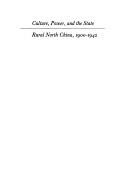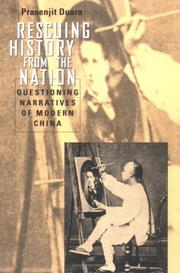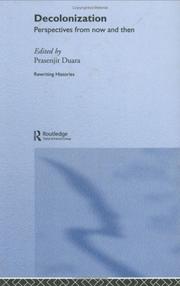| Listing 1 - 10 of 20 | << page >> |
Sort by
|

ISBN: 0804714452 0804718881 9780804714457 9780804718882 0585303274 9780585303277 0804765588 Year: 1988 Publisher: Stanford, California
Abstract | Keywords | Export | Availability | Bookmark
 Loading...
Loading...Choose an application
- Reference Manager
- EndNote
- RefWorks (Direct export to RefWorks)
Local government --- -Power (Social sciences) --- Rural development --- -Empowerment (Social sciences) --- Political power --- Exchange theory (Sociology) --- Political science --- Social sciences --- Sociology --- Consensus (Social sciences) --- Community development, Rural --- Development, Rural --- Integrated rural development --- Regional development --- Rehabilitation, Rural --- Rural community development --- Rural economic development --- Agriculture and state --- Community development --- Economic development --- Regional planning --- Local administration --- Township government --- Subnational governments --- Administrative and political divisions --- Decentralization in government --- Public administration --- History --- -History --- -Citizen participation --- Social aspects --- China --- Social conditions --- -Local government --- Power (Social sciences). --- Power (Social sciences) --- Administration locale --- Pouvoir (Sciences sociales) --- Développement rural --- Histoire --- Chine --- Conditions sociales --- Cina --- Kinë --- Cathay --- Chinese National Government --- Chung-kuo kuo min cheng fu --- Republic of China (1912-1949) --- Kuo min cheng fu (China : 1912-1949) --- Chung-hua min kuo (1912-1949) --- Kina (China) --- National Government (1912-1949) --- China (Republic : 1912-1949) --- People's Republic of China --- Chinese People's Republic --- Chung-hua jen min kung ho kuo --- Central People's Government of Communist China --- Chung yang jen min cheng fu --- Chung-hua chung yang jen min kung ho kuo --- Central Government of the People's Republic of China --- Zhonghua Renmin Gongheguo --- Zhong hua ren min gong he guo --- Kitaĭskai︠a︡ Narodnai︠a︡ Respublika --- Činská lidová republika --- RRT --- Republik Rakjat Tiongkok --- KNR --- Kytaĭsʹka Narodna Respublika --- Jumhūriyat al-Ṣīn al-Shaʻbīyah --- RRC --- Kitaĭ --- Kínai Népköztársaság --- Chūka Jinmin Kyōwakoku --- Erets Sin --- Sin --- Sāthāranarat Prachāchon Čhīn --- P.R. China --- PR China --- Chung-kuo --- Zhongguo --- Zhonghuaminguo (1912-1949) --- Zhong guo --- République Populaire de Chine --- República Popular China --- Catay --- VR China --- VRChina --- 中國 --- 中国 --- 中华人民共和国 --- Jhongguó --- Bu̇gu̇de Nayiramdaxu Dundadu Arad Ulus --- Bu̇gu̇de Nayiramdaqu Dumdadu Arad Ulus --- Bu̇gd Naĭramdakh Dundad Ard Uls --- Khi︠a︡tad --- Kitad --- Dumdadu Ulus --- Dumdad Uls --- Думдад Улс --- Kitajska --- Empowerment (Social sciences) --- Citizen participation --- Desarrollo rural --- Países en vías de desarrollo --- Desarrollo comunitario agrario --- Desarrollo económico agrario --- Política agraria --- Desarrollo económico --- Ordenación del territorio --- Suelo, Utilización agrícola del --- Desarrollo agrario --- Planificación

ISBN: 0226167216 0226167224 9780226167220 9780226167213 9780226167237 0226167232 Year: 1995 Publisher: Chicago, Ill.: University of Chicago press,
Abstract | Keywords | Export | Availability | Bookmark
 Loading...
Loading...Choose an application
- Reference Manager
- EndNote
- RefWorks (Direct export to RefWorks)
Civilization, Oriental. --- Civilisation orientale --- China --- Chine --- Historiography. --- History --- Historiographie --- Histoire --- S04/0200 --- S04/0790 --- Civilization, Oriental --- Civilization, Eastern --- Eastern civilization --- Oriental civilization --- China: History--Historiography and theory of history --- China: History--20th century, general: China --- -Civilization, Oriental. --- -S04/0200 --- Cina --- Kinë --- Cathay --- Chinese National Government --- Chung-kuo kuo min cheng fu --- Republic of China (1912-1949) --- Kuo min cheng fu (China : 1912-1949) --- Chung-hua min kuo (1912-1949) --- Kina (China) --- National Government (1912-1949) --- China (Republic : 1912-1949) --- People's Republic of China --- Chinese People's Republic --- Chung-hua jen min kung ho kuo --- Central People's Government of Communist China --- Chung yang jen min cheng fu --- Chung-hua chung yang jen min kung ho kuo --- Central Government of the People's Republic of China --- Zhonghua Renmin Gongheguo --- Zhong hua ren min gong he guo --- Kitaĭskai︠a︡ Narodnai︠a︡ Respublika --- Činská lidová republika --- RRT --- Republik Rakjat Tiongkok --- KNR --- Kytaĭsʹka Narodna Respublika --- Jumhūriyat al-Ṣīn al-Shaʻbīyah --- RRC --- Kitaĭ --- Kínai Népköztársaság --- Chūka Jinmin Kyōwakoku --- Erets Sin --- Sin --- Sāthāranarat Prachāchon Čhīn --- P.R. China --- PR China --- Chung-kuo --- Zhongguo --- Zhonghuaminguo (1912-1949) --- Zhong guo --- République Populaire de Chine --- República Popular China --- Catay --- VR China --- VRChina --- 中國 --- 中国 --- 中华人民共和国 --- Jhongguó --- Bu̇gu̇de Nayiramdaxu Dundadu Arad Ulus --- Bu̇gu̇de Nayiramdaqu Dumdadu Arad Ulus --- Bu̇gd Naĭramdakh Dundad Ard Uls --- Khi︠a︡tad --- Kitad --- Dumdadu Ulus --- Dumdad Uls --- Думдад Улс --- Kitajska --- Historiography --- China - Historiography --- China - History - 20th century
Book
ISBN: 9780415482905 0415482909 0415482895 9780415482899 9780203884379 9781134015252 9781134015290 9781134015306 Year: 2009 Publisher: London Routledge
Abstract | Keywords | Export | Availability | Bookmark
 Loading...
Loading...Choose an application
- Reference Manager
- EndNote
- RefWorks (Direct export to RefWorks)
S04/0790 --- China: History--20th century, general: China --- Geopolitics --- Regionalism --- World politics --- Human geography --- Nationalism --- Interregionalism --- History --- China --- Politics and government

ISBN: 041524840X 1134537085 128003632X 0203485521 9780203485521 0203569555 9780203569559 0415248418 9780415248419 9780415248402 0415248418 9780415248419 9781134537037 9781134537075 9781134537082 Year: 2004 Publisher: London New York Routledge
Abstract | Keywords | Export | Availability | Bookmark
 Loading...
Loading...Choose an application
- Reference Manager
- EndNote
- RefWorks (Direct export to RefWorks)
Brings together the most cutting edge thinking by major historians of decolonization to create a groundbreaking study of a subject central to recent global history.
Decolonization --- Imperialism --- Postcolonialism --- Social change --- Change, Social --- Cultural change --- Cultural transformation --- Societal change --- Socio-cultural change --- Social history --- Social evolution --- Post-colonialism --- Postcolonial theory --- Political science --- Colonialism --- Empires --- Expansion (United States politics) --- Neocolonialism --- Anti-imperialist movements --- Caesarism --- Chauvinism and jingoism --- Militarism --- Sovereignty --- Autonomy and independence movements --- Colonization --- Colonialism & Postcolonialism --- Political Science --- Law, Politics & Government --- Decolonization. --- Imperialism. --- Postcolonialism. --- Social change.
Book
ISBN: 1107082250 1107442850 9781107082250 9781107442856 1316191745 1316189902 1139998226 Year: 2015 Publisher: Cambridge : Cambridge University Press,
Abstract | Keywords | Export | Availability | Bookmark
 Loading...
Loading...Choose an application
- Reference Manager
- EndNote
- RefWorks (Direct export to RefWorks)
In this major new study, Prasenjit Duara expands his influential theoretical framework to present circulatory, transnational histories as an alternative to nationalist history. Duara argues that the present day is defined by the intersection of three global changes: the rise of non-western powers, the crisis of environmental sustainability and the loss of authoritative sources of what he terms transcendence - the ideals, principles and ethics once found in religions or political ideologies. The physical salvation of the world is becoming - and must become - the transcendent goal of our times, but this goal must transcend national sovereignty if it is to succeed. Duara suggests that a viable foundation for sustainability might be found in the traditions of Asia, which offer different ways of understanding the relationship between the personal, ecological and universal. These traditions must be understood through the ways they have circulated and converged with contemporary developments.
Globalization. --- Manners and customs. --- Moderne. --- Nachhaltigkeit. --- Politische Philosophie. --- Sustainable development. --- Transcendence (Philosophy). --- Asien. --- Azië. --- Transcendence (Philosophy) --- Global cities --- Globalisation --- Internationalization --- International relations --- Anti-globalization movement --- Ceremonies --- Customs, Social --- Folkways --- Social customs --- Social life and customs --- Traditions --- Usages --- Civilization --- Ethnology --- Etiquette --- Rites and ceremonies --- Philosophy --- Development, Sustainable --- Ecologically sustainable development --- Economic development, Sustainable --- Economic sustainability --- ESD (Ecologically sustainable development) --- Smart growth --- Sustainable development --- Sustainable economic development --- Economic development --- Environmental aspects
Multi
ISBN: 9781139998222 9781107082250 9781107442856 Year: 2015 Publisher: Cambridge Cambridge University Press
Abstract | Keywords | Export | Availability | Bookmark
 Loading...
Loading...Choose an application
- Reference Manager
- EndNote
- RefWorks (Direct export to RefWorks)
Book
ISBN: 9004264191 9789004264199 9789004264182 9004264183 Year: 2016 Publisher: Leiden Boston
Abstract | Keywords | Export | Availability | Bookmark
 Loading...
Loading...Choose an application
- Reference Manager
- EndNote
- RefWorks (Direct export to RefWorks)
The European 'dark ages' in the millennium 500 to 1500 CE was a bright age of scientific achievements in China, India and the Middle East. The contributors to this volume address the implications of this seminal era of Asian science for comparative and connective science studies. Although such studies have generally adopted a binary perspective focusing on one or another of the Asian (Chinese, Indian, Islamic) civilizations, this study brings them together into a single volume within a wider Eurasian perspective. Moreover, by drawing together historical, philosophical, and sociological dimensions into one volume it promotes a richer understanding of how Eurasian connections and comparisons in the millennium preceding the modern era can illuminate the birth and growth of modern science. Contributors are Arun Bala, Andrew Brennan, James Robert Brown, George Gheverghese Joseph, Henrik Lagerlund, Norva Y.S. Lo, Roddam Narasimha, Hyunhee Park, Franklin Thomas Perkins, Hans Pols, Kapil Raj, Sundar Sarukkai, Mohd. Hazim Shah, Geir Sigurðsson and Cecilia Wee.
Science, Medieval. --- Middle Ages. --- Science --- Natural science --- Natural sciences --- Science of science --- Sciences --- Dark Ages --- History, Medieval --- Medieval history --- Medieval period --- Middle Ages --- World history, Medieval --- World history --- Civilization, Medieval --- Medievalism --- Renaissance --- Medieval science --- History
Book
ISBN: 9814414514 9814414492 Year: 2013 Publisher: Singapore : ISEAS,
Abstract | Keywords | Export | Availability | Bookmark
 Loading...
Loading...Choose an application
- Reference Manager
- EndNote
- RefWorks (Direct export to RefWorks)
In the erudite essay that opens this forum, Prasenjit Duara turns to both indigenous thinkers and the premodern past for tools with which to think about Asia in a global age. Contemporary modalities of regional exchange - 'weakly bounded, network-oriented, pluralistic, multitemporal' - chime with earlier patterns of cultural circulation without state domination, giving rise to a prophetic vision of 'Asia Redux'. This attempt to capture the contours of a (re)-emergent region was calculated to provide. And what a debate it kicks off. Wang Hui resolutely reframe imagining Asia as a political project on a world-historical canvas. Tansen Sen greatly complicates the map of intra-Asian commercial exchange in earlier times; Amitav Acharya outlines five competing conceptions of Asia in the domain of international relations alone.; Barbara Watson Andaya teases out the paradoxical way in which regional religions make clashing claims about Asian unity; and Rudolf Mrazek asks, what of the Asia that bleeds? what of exploitation and its spawn, the inglorious 'built-ends' of the global economy? The reward for those who read this collection straight through is a thrillingly cacophonous conversation about how to grasp Asia in our time.' - Karen E. Wigen, Stanford University 'Will a re-emergent Asia extend the violent rivalries and inequalities of Western-dominated empires, nations and capital? Or can Asia somehow draw on a relatively more peaceful past of maritime trade, interlinked religions and circulations beyond states to think and make a very different sort of region and world? Prasenjit Duara and his interlocutors define this vital debate on Asia's future through illuminating reflections on its recent and deep past. A touchstone for anyone concerned with a future shape of an inter-connected Asia newly possessed of wealth and power' - Engseng Ho, Duke University
Regionalism --- Asia --- History. --- Regionalism--Asia. --- HISTORY / Asia / General.
Book
ISBN: 9789814414517 9789814414494 Year: 2013 Publisher: Singapore ISEAS
Abstract | Keywords | Export | Availability | Bookmark
 Loading...
Loading...Choose an application
- Reference Manager
- EndNote
- RefWorks (Direct export to RefWorks)
Digital
ISBN: 9789814414517 Year: 2013 Publisher: Singapore ISEAS
Abstract | Keywords | Export | Availability | Bookmark
 Loading...
Loading...Choose an application
- Reference Manager
- EndNote
- RefWorks (Direct export to RefWorks)
| Listing 1 - 10 of 20 | << page >> |
Sort by
|

 Search
Search Feedback
Feedback About UniCat
About UniCat  Help
Help News
News